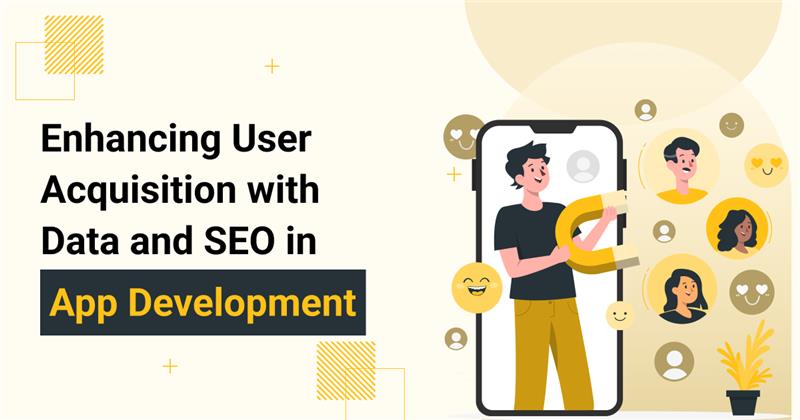The Essential Role of Specialized Translators
The need for accurate translations has dramatically increased in our globally connected world. As international business and communication continue to expand, quality translation is crucial. This article looks into the indispensable part played by the specialized human translators in making sure that the translations are as precise as possible – something that no technology can still fully do.
The Rising Demand for Translation
Due to globalization, there is a towering demand for translation and interpreters. The total size of the global translation service market was estimated at USD 40.95 billion in 2023 and USD 41.78 billion in 2024. This immense growth stems from the following:
More International Business
With increased global commerce, there’s a greater need to translate:
- Websites.
- Marketing materials.
- User manuals.
- Product specifications.
- Business negotiations.
- International contracts.
- Financial documents.
Companies require skilled translators to ensure information accuracy.
Global Access to Information
The internet transcends geography. People now access information from around the world, which requires translators to make content accessible by converting it to other languages.
So, a fast online translation service from Rapid Translate helps meet this growing demand for quick, accessible translation solutions.
Travel and Immigration
Translators assist to address communication gaps as world immigration and tourism rise. In education, legal processes, healthcare, refugee assistance programs, and more they are indispensible.
The demand this high is much more than the supply of experienced human translators can handle. However, for very accurate translations, artificial intelligence and technology cannot yet substitute specialized human knowledge.
The Irreplaceable Human Translator
Language translation is a very complicated thing, it takes a huge amount of cultural, context, dialects, syntax, and semantics knowledge. Translation technology has improved, but specialised human translators cannot be replaced by it for accurate translations.
Nuanced Human Judgment
Language is messy. Words have multiple meanings and have context-dependent subtleties in connotation and we rely on humanities judgment to decide which meaning of the word best fits the context.
For instance, in legal terms, interpretation can be different by jurisdictions. Those highly qualified legal translators with specialized expertise are best placed to make those judgments.
Cultural Frameworks and Context
Human translators innately understand social, historical and cultural frameworks critical for translation accuracy. Software cannot easily account for these contexts.
Sarcasm and humor often don’t translate literally. The underlying cultural contexts must inform the translation, and subtle idioms also require cultural fluency.
Language Is Always Evolving
Human languages are deeply complex, fluid and continually evolving systems. Translators must keep pace with new terms, slang, dialects and linguistic developments.
For instance, the internet has birthed endless neologisms, so translators must stay abreast of the latest trends and meanings.
Specialist Knowledge
Precise translation requires specialist knowledge of the subject matter. The software does not understand specific professional fields and terminology.
Experts with targeted industry backgrounds – such as legal, financial, medical, or technical – are vital for accurate translations. They understand subtleties and profession-specific phrases that general translators or software cannot grasp.
Challenges of Relying on Technology
Translation technology like Google Translate can deliver helpful approximations. However, current software falls dramatically short in publishing, business, legal or medical contexts that require high accuracy.
Loss of Nuance and Accuracy. Subtleties in meaning and intent can become lost or distorted. Errors could have serious ethical, medical or financial consequences.
Inability to Grasp Context. Software cannot reliably analyze the wider context, cultural references, subtext and other qualitative aspects that shape meaning.
Lack of Quality Control. Machine translation is not methodically quality controlled. Although software development keeps going, human review is still crucial for guarantee of accuracy.
Promising is advanced neural machine translation. Still, quality and accuracy problems exist without professional human translators carefully reviewing output.
The Critical Expertise of Specialized Translators
Language translation is an immensely sophisticated task. Achieving accuracy and faithfulness to the source material requires human cognition and specialized expertise.
Deep Understanding of Languages and Cultures. Skilled human translators have an innate grasp of the linguistic and cultural contexts surrounding the source language and intended audience, which facilitates accurately transmitting meaning.
Specialist Background Knowledge. Deep subject matter expertise in areas like medicine, law, engineering or academia is vital for precise terminology and phrasing. Accurately conveying specialized information requires specialist translators.
Commitment to Quality Assurance. Established translators follow robust quality assurance processes with strict protocols and multiple reviews to assure precision. This professional rigor is the best path to accuracy.
Specialized experts with excellent linguistic skills, deep cultural and subject matter expertise, and an ethical commitment to quality produce the most accurate translations.
Professional Translators Create Trust
Accurate communication builds trust, which is vital for international business and global relationships. Professional human translators foster credibility and confidence:
Reduce Risk. Reliable translations mitigate risk in high-stakes areas like clinical trials, medical devices, legal matters, finances, aviation, diplomacy and defense. Specialized translators intimately understand linguistic and regulatory complexities to transform information accurately across languages, averting problems.
Build Company Reputations. Accurate, sensitive translations help companies build positive reputations and local relationships in international markets. Professional translators aid localization and cultural adaptation.
Smooth Business Functions. Precise communication of complex product specifications, user manuals, websites and software interfaces enables smoother cross-border commerce. Skilled translators facilitate functionality.
Share Ideas Seamlessly. Specialized translators allow seamless global access to research, academia, news and entertainment, enabling ideas to spread internationally.
Quality translation breaks down barriers to business, relationships, and the exchange of ideas, which are vital for progress.
Working With Specialized Translation Experts
When highly accurate translations are imperative, specialized human expertise remains irreplaceable by technology. Global communications demand quality translations. Here are the best practices for working with professional translators:
Clearly Specify The Audience. Find out who your target audience is, what field they are in, what background knowledge they have, and what dialect and cultural nuances they have. These shape the translation approach.
Define Success Metrics. Set objective accuracy metrics, such as error rates or target comprehension rates. Conduct consumer testing to see if messages translate clearly.
Partner With Specialists. Get proven quality record translators, subject matter experts, linguistic excellence, and cultural mastery. Request for portfolios and references.
Agree On Diligent Quality Assurance. Use computer aids as supplements to ensure the robust application of translator quality assurance protocols. Demand multiple human reviews by different specialists.
Request Regular Progress Updates. Frequently assess samples during projects to clarify terminology choices promptly, identify issues early, and redirect the approach if needed.
Build Trusted Relationships. Create long-term partnerships with top-notch translators who know your company’s voice, style and industry inside out. Trusted relationships lead to better results.
The best outcomes will come from engaging specialized bilingual subject matter experts with cultural mastery. However, as technology advances, that is not always enough. When choosing to source translators to translate your content, ensure you prioritize experience, quality assurance, and expertise.
Conclusion: The Future of Translation
Better artificial intelligence and computational power technologies are being developed that will progressively extend the realm of automated translation technology. The more neural machine learning advances, the more software will be useful for more basic translation tasks.
However, the many intricacies of language have multiplied exponentially across thousands of linguistic and cultural combinations, making it impossible for machines to replicate human cognition. Specialized expertise will continue to be needed for precision in the future.
Human translators increasingly use technology as an aid, but the human decision regarding accuracy is still the final word, especially for high-stakes communication. Only the human mind can sift through the endless nebulous details involved in language translation accuracy between contexts.




